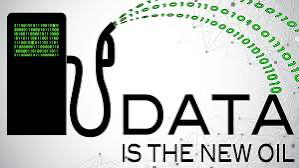Data Is The New Oil!
 Vikas Dubey
Vikas Dubey
Hello everyone! I know I may not seem very interesting, and as an introvert, I doubt many will follow me. But let’s look at the bigger picture: we live in a world of 7 billion people, 90% of whom are in the digital era, generating petabytes of data every millisecond across numerous platforms, leaving behind digital footprints.
Taking my Instagram, Facebook, and LinkedIn profiles as examples, let’s say I want to calculate the likes on each of my posts to see if Domino’s might offer me a sponsorship. How would they know if I’m a good fit for their campaign? Here’s the process:
Domino’s would hire a Big Data Architect. This person would gather all my data from various sources (how they manage that is not our concern). If they were to analyze 8 years’ worth of likes, it would amount to petabytes of data, which can’t be handled by Excel.
They would first store the data, then pass it to Mappers (Big Data term), which are powerful computers that sort the likes by platform. The data would then be Shuffled, grouping it based on platforms like Facebook, Instagram, and LinkedIn. Finally, in the Reducers phase, the likes would be summed up for each platform.
This Process Is Known As MAPREDUCE a Popular Term in Big Data
For example, the CSV file with my data might look like this:
Facebook, 150
Instagram, 300
LinkedIn, 100
Facebook, 50
Instagram, 120
LinkedIn, 80
After processing, the result would be:
• Facebook: 200 likes
• Instagram: 420 likes
• LinkedIn: 180 likes
Summary of Engagement:
• Total Engagement: 800 likes
• Facebook: 25%
• Instagram: 52.5%
• LinkedIn: 22.5%
Based on these stats, I can confidently say to Domino’s that I’m not the right fit for a sponsorship. 😄
Happy learning!
Subscribe to my newsletter
Read articles from Vikas Dubey directly inside your inbox. Subscribe to the newsletter, and don't miss out.
Written by

Vikas Dubey
Vikas Dubey
Cloud Solution Architect, can drag you out of problem